#what will happen next
Explore tagged Tumblr posts
Text

A pretty revolutionary for a dashing warlord to ravish..
#one piece#monkey d dragon#my art shit#how to welcome your warlord husband home#crocodile quick ravish your husband#what will happen next
785 notes
·
View notes
Text
"When you come back, you will not be you. And I may not be I"

#nomae#protect them#hurting myself over here 😭#noamae#how will they meet again#time is a funny thing#noa kotpota#planet of the apes#kotpota#noa x mae#mae kotpota#kingdom of the planet fo the apes#pota#what will happen next
141 notes
·
View notes
Text
Alright girly pops where do we think edge of sleep is coming out?
Im better prime-
I did a bit of digging and it looks like new regency is one of the businesses that partnered to make it into a show--
They often host on Prime--
So october 18th huh? Yall think prime as a site with shut down with the outpouring of people or--
Take ur bets in the comments
#edge of sleep#mark#markiplier#markerpliers#markimoo#prime#amazon#tumblr fyp#hehehhe#what will happen next
48 notes
·
View notes
Text
Is that supposed to be a Stephanie from Lazy Town reference??


28 notes
·
View notes
Text

For those of you not on Twitter/X: Trent Beretta vs Matt Sydal just announced for Zero Hour before AEW Dynasty on Sunday! Trent's first match since he turned on Orange Cassidy. I'm really curious to see if Orange will interfere or come out at the end like what Trent has been doing to him. Also curious to see if Chuck Taylor will be there? Also.. the song and ring gear? lots of questions! Sunday could be very interesting! *I'll be posting GIFs and moments for you all as well!
#trent beretta#aew dynasty#aew#zero hour#interesting#matt sydal#so many questions#what will happen next#faction: best friends#orange cassidy#chuck taylor#just announced
29 notes
·
View notes
Text

marcus on a scooter
9 notes
·
View notes
Text
I regret to inform you all that I'm in my failgirl era.
#I thought I was in my villain era I WAS SO WRONG#I got coffee all down the mug despite the machine being automated#I was coiling an extension cable and somehow flung the plug head and donked myself on the head with it (it hurt)#i bought a fancy cookie that was way smaller than I thought it'd be and did NOT taste good enough for the price#got a rejection email for [REDACTED]#what will happen next#the night is still young#shy talks#not art
10 notes
·
View notes
Text
i love themmmmmm :(((((


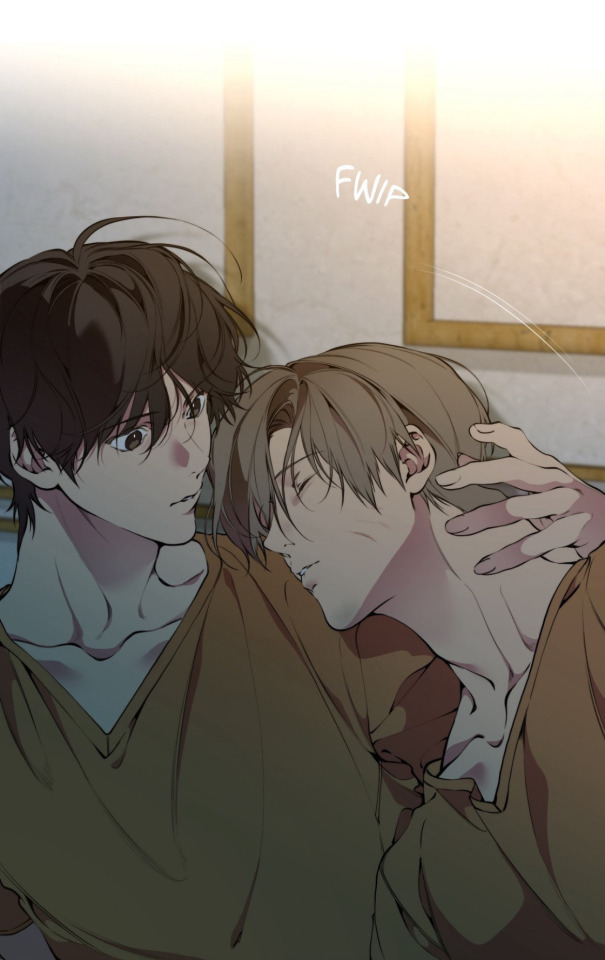

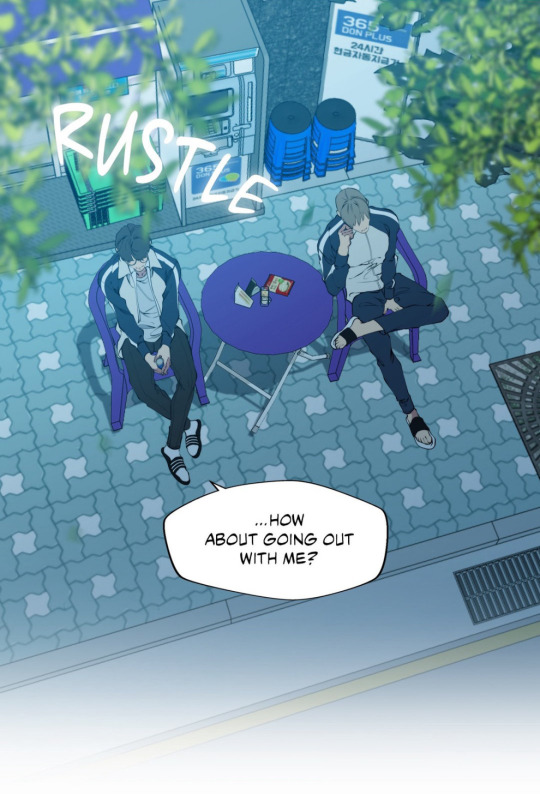

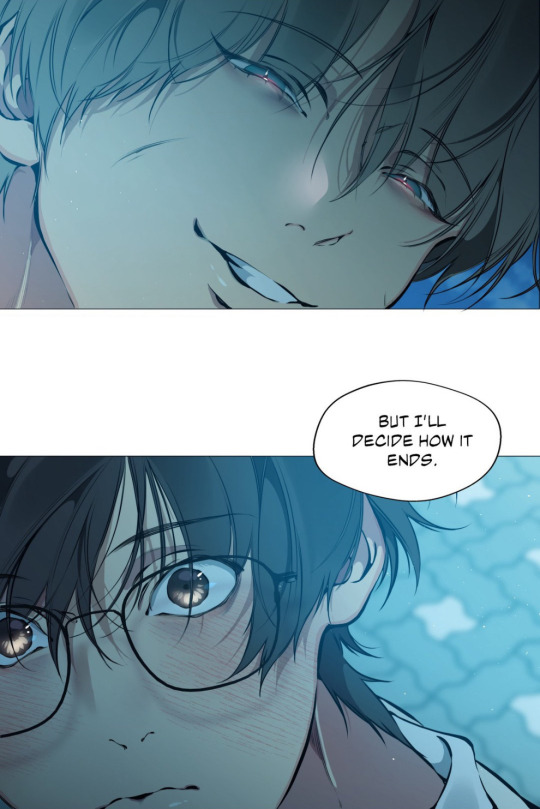
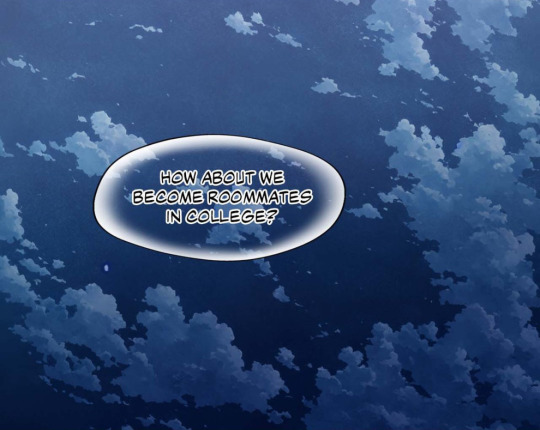


#skyler i like you a lot#:(((((#i love them#lost in the cloud#ch 91#read#WHAT WILL HAPPEN NEXT#i can’t wait
20 notes
·
View notes
Text

It's Anybody's Guess, Charlie Brown...
5 notes
·
View notes
Text
Good vs Right (GO2 meta)
[Disclaimer: Good Omens Season Two Spoilers]
So, I have a lot of thoughts about the finale...
More specifically, I have a lot of thoughts about Aziraphale and how/why he did what he did. I feel like I usually understand/relate to Crowley's character more easily so it was kind of fun getting a chance to break down Aziraphale's character for once and try and get inside his head. Anyway, I hope someone else finds this interesting because I had a lot of fun writing it!
(DISCLAIMER: GOOD OMENS SEASON TWO SPOILERS)
Good vs Right
(A Mini Essay on Aziraphale and Heaven’s Toxic influence)
By: Me
I’ve seen, since the release of the final episode of Good Omens Season Two, a lot of varying reactions from fans. A lot have jokingly raged against Neil Gaiman — the majority creator of the tv show and the original story of Good Omens — for the painful end of the season ( I will admit to being among them). A lot of fans also have hope that, if the story has the opportunity to continue, it will get better and reach a satisfactory end (I also have this dream). A lot of fans do not agree with Aziraphale’s decision to go back and lead Heaven. I very much do not agree either. When I first finished the episode, I asked myself “Why? Why would he do that? How could he do that?” And I think I’m finally starting to understand it now that I’ve had time to think about it in-depth.
In order to understand the end of Season Two we must go back to the beginning, to a garden on a nice day (yes, that far). The first we see of Aziraphale, he is on watch in the Garden of Eden and we learn very quickly that he has just given his holy flaming sword to Adam and Eve who have just been cast out. As far as character introductions go, this is a great one. Not only do we get the dynamic of Crowley and Aziraphale and their opposing roles as demon and angel instantly established. We also are introduced to the epitome of that which is Aziraphale’s character: Doing Right vs Doing Good. By giving his sword away, Aziraphale, for the first time ever, choses doing good over doing right. This introduction, while demonstrating the importance of Aziraphale’s title as an angel of God, also frames it in a way that suggests, when push comes to shove, Aziraphael would rather be a good person than a good angel.
Following that, many years later Aziraphale finds himself standing at the base of Noah’s Arc right before the Great Flood. His conversation with Crowley illuminates both his aversion to what is about to happen and his compliance through inaction. It seems pretty clear that he doesn’t want the Earth to flood, but neither is he willing to stand against God and stop it. When Crowley asks if even the children are to be killed, Aziraphale looks even more uncomfortable. Killing innocent children is a quintessentially evil act, and yet it is being done by his benevolent God. These two facts are contradictory. Aziraphale reconciles this by falling back on the one word that has always swayed his doubts — ineffable. He believes that God knows better, that God is good and therefore must also be right. Unfortunately, we do not get to see Aziraphale’s reaction when the flood finally does come, but I’d bet that his doubts during those forty days and forty nights are louder than they ever had been before.
Another instance of note is during the minisode of Job. In it, Aziraphale finds out that God has entered into a bet with Satan about the human Job. To test his faith, Satan is allowed to commit atrocities against Job and everything he loves. One of these tests is that Job’s children are to be killed (again, innocent children). Aziraphale, when speaking to Crowley who has been sent to complete the job, shares his disapproval. Later, Aziraphale even goes to Crowley and pleads with him to not kill the children. This could be seen as a small rebellion against God’s wishes, but I don’t think Aziraphale sees it as that. He is not pleading for God to make a change; He is pleading to Crowley and, by association, Hell. Despite that, despite his obvious disagreement with what is about to take place, Aziraphale walks away.
We see it time and time again through the series. Aziraphale has a better moral compass than the other angels. He knows when something is not good. And yet he is unwilling to directly influence anything. He doesn’t stop Crowley when he thinks he is going to kill the children, but when Crowley ends up saving the children later on, Aziraphale doesn’t stop him then either. He is merely a bystander. It isn’t until near the end of the minisode when he lies directly to Gabriel and the other angels’ faces that he gains any true agency in the situation. More importantly, in the final scene of the minisode Aziraphale asks if Crowley is there to take him to Hell. This shows us that Aziraphale lied to protect Job’s children while believing that it would lead him to fall. And yet he did it anyway. I believe this gives us a lot of insight into Aziraphale’s mindset. This, similar to when he gave away his sword, is one of the few instances in which he choses being good over being right. And it terrifies him.
Aziraphale is terrified to fall. Being an angel is a huge part of his identity and to lose that would be traumatizing. Not only does it scare him because Hell is, well, Hell. But because Hell is the place where bad people go and if he falls then that means he is bad. This is Aziraphale’s biggest fear. His entire character, his entire life is based on the belief that he is doing good, so it is understandable that he doesn’t want to fall. Unfortunately, Heaven is no longer based on doing good. They (meaning the collective entity that is Heaven) believe more in doing right than doing good. But Aziraphale doesn’t see that. His faith in Heaven means that he doesn’t understand that, for others, there is a disconnect between the two concepts.
This misunderstanding puts an enormous strain on Aziraphale. It also leads me to what, I believe, is Aziraphale’s biggest motivator, which is Moral Perfectionism. The best summary I’ve found on this idea comes from an article from the 16personalities site which describes two kinds of perfectionism: Material and Existential. Most of us understand the more common use of perfectionism (material) which focuses on attention to details — perfect grammar, perfect grades, perfectly clean room. This type of perfectionism is more tangible, whereas moral (existential) perfectionism is more abstract and, in some ways, more personal as it pertains to an individual’s character and sense of identity. The article describes people with moral perfectionism as people who “try to be perfect on a moral, rational or even spiritual level… For someone dealing with existential perfectionism, “Am I a good person?” is the unrelenting question. Furthermore, for them, the “good” in the question usually means “perfect.”” Sound familiar? Maybe like a certain angel we know?
Aziraphale is obsessed with always being good because he believes that even one simple mistake could mean the end of who he is and all he loves. If he isn’t an angel, he isn’t good. If he isn’t an angel, he can’t continue to help humanity or even just experience humanity. Falling means failing.
Fast Forward to the end of the world. Aziraphale is faced with the ultimate choice. He can either follow orders and do nothing or he can act and save everything that he loves. And he chooses to act. Of course, he only does so after Crowley words it in a way that makes it seem as if they are not directly opposing Heaven and Hell, but for the sake of the argument let’s say that, deep down, Aziraphale knows what he’s doing is treasonous. He goes against Heaven and Hell and it takes a lot of bravery, but he does it. And when Heaven and Hell (Gabriel and Beelzebub) come to punish him, Aziraphale takes one out of Crowley’s book and reframes the situation. It may be that he has gone against the Great Plan, but it may not be the Ineffable Plan. This is his justification and it works. It gives Aziraphale more freedom to make his own choices because he no longer has to follow a script he doesn’t fully believe in. When the first season ends, Aziraphale and Crowley are free from both Heaven and Hell, and they enjoy their new future over a toast where they say “To the World”. It is the perfect quote to represent their love for humanity, for free will, and for choosing good.
So we go back to the final scene in Season Two. We go back with a new perspective, one in which Aziraphale is motivated by fear, one in which he is a moral perfectionist and desperate to be both good and right. And it all makes a little more sense.
In the final scene of Season Two, Aziraphale comes back into the bookshop after talking to the Metatron looking extremely excited. He steamrolls over Crowley, definitely not reading the room, and tells him the “good news”. Now, for anyone who watched the show, I’m sure you knew that Crowley was never going to be happy about that news. For two seasons we’ve seen him show nothing but resentment towards Heaven. And one might (Aziraphale certainly does) interpret that as bitterness, for being cast out of a place he can’t but wishes to return to.
This is not the case. Crowley has mentioned before to Aziraphale that he is not “nice”. At one point in time, he even shoves Aziraphale against a wall for saying so. He is very adamant about not being nice. Similarly, in the bandstand scene, Crowley tells Aziraphale that he is “unforgivable”. Aziraphale, after thousands of years knowing Crowley, knows that neither of these things are true.
But I don’t think Crowley really believes these things either. I think he rebels against the idea of being “nice” because it feels too much like being associated with Heaven. Heaven is supposed to be full of the nice guys and he certainly isn’t one of them anymore. Being called nice, when Aziraphale does it at least, means being called inherently good. You’re nice because you’re supposed to be. And that is certainly not the case for Crowley. He’s not supposed to be nice. He’s supposed to be bad, to be evil, a demon. But he choses differently. And when Aziraphale calls him nice it feels like he’s diminishing the absolute effort it takes for Crowley to be good. He isn’t nice. He’s not supposed to be. But he does nice things anyway. And that means a whole lot more than being inherently nice. I’m sure there is other reasoning that makes Crowley adverse to compliments (and I have a few more theories of my own) but to resist going on a tangent we will limit it to that line of reasoning for now.
Similarly, when Crowley says he’s “unforgivable”, it isn’t a value judgment of himself. Crowley has shown several times throughout the show how he doesn’t believe he did anything wrong. He doesn’t believe he deserved to be cast from Heaven. What he means is that he — quite literally — will not be forgiven. He has a better understanding of how Heaven and God work. He knows that Heaven is a corrupt system. He knows that God is not all benevolent. That’s the point he’s trying to make. He’s trying to open Aziraphale’s eyes to the truth, to the imperfection that exists on “his side”. Heaven isn’t all good. He tries to tell him. They will never accept me back, and I would never go back to them even if they did.
Which is why Aziraphale’s offer — his excitement at the idea — is so devastating. He doesn’t understand what Crowley has been trying to tell him this whole time. Crowley doesn’t want to go back to Heaven. He doesn’t want to because “we're better than that”. Crowley isn’t one to follow blindly. He’s an independent thinker. It’s the whole reason why he fell. He’s always felt like he’s on his own. But at the same time, he was never really alone. Because he had always thought — hoped — that Aziraphale was at least with him on this. “you're better than that, Angel,” he says and he means it. He’s spent lifetimes believing that Aziraphale is one of the last angels who believe in doing good.
And he’s right. Only Aziraphale doesn’t know that. He thinks the system can be saved. He still believes that Good and Right are the same thing. Because if they aren’t, then maybe God made a mistake. Maybe it was wrong to cast Crowley out (wonderful, demonic, good-by-choice, good-despite-everything Crowley). However… If Crowley comes back to Heaven, then Aziraphale’s world view doesn’t have to crumble. He can do that reframing technique he loves so much. He can tell himself that Crowley falling wasn’t a mistake, just a temporary setback, a lesson that needed to be learned. He’s begging, pleading for Crowley to fix things once again, to do this one thing for him so that everything doesn’t have to change. “Crowley, come back to Heaven!” “Work with me!” “We can be together!” “Angels... doing good!” Angels. Doing good. It’s all that Aziraphale wants. But he can’t have that. Because he says, “I don't think you understand what I'm offering you.” And Crowley responds with, “I understand. I think I understand a whole lot better than you do.”
Because… Good and Right aren’t the same thing. And Aziraphale doesn’t understand that. It’s not entirely his fault. This notion is his own kind of coping-technique, the way he justifies all the bad. He wouldn’t have made it this long as an Angel otherwise. Because doubt leads to questions and questions lead to falling. And falling is failing. And Aziraphale is terrified of failing. For thousands of years, he’s existed under the thumb of Heaven’s power, a system built to motivate through fear, through punishment (the threat of the fall).
So it makes sense why Aziraphale is the way he is. And it hurts all the more because looking at it through that lens makes the season finale seem almost inevitable. Aziraphale was always going to be excited by the Metatron’s proposition. And Crowley was always going to say no. And they were always going to end up where they are now, one way or another. Because for as much they’ve worked against Heaven and Hell together, fighting for freedom, fighting for themselves (their own side), they aren’t really together. Aziraphale still supports the system. Crowley still wants to see it destroyed. They are still on different sides.
My hope is that in the Third Season (please, please, please, let us have a Third Season) Aziraphale is able to learn that Good and Right aren’t the same thing and that sometimes doing the good thing means going against what you’re told is right. But I hope he doesn’t have to fall to learn that lesson. More importantly, I hope he doesn’t lose his hope and kindness and faith. There’s something beautiful about believing in goodness. So I guess I’ll end by saying, I think Aziraphale is a flawed character, and I don’t agree with some of the things he does, but, I think, this meta has helped me to better understand him. Because good writing isn’t having characters always make good decisions. It’s about making the bad decisions believable. And Aziraphale’s journey is incredibly believable and human and compelling. I can’t wait to see what happens next!
(And if you've stuck around this long, thank you for coming to my Ted Talk)
#good omens#good omens 2#rambles by me#long rambles#Aziraphale#ineffable divorce#character study#character analysis#Neil Gaiman why#renew good omens#Crowley#(but it's not about him)#maybe I'll shout into the void about him another time#I have a lot of feelings about Crowley#And Good Omens in general#good writing#but I'm scarred#what will happen next#I wonder
12 notes
·
View notes
Text
07 for the Company
4 notes
·
View notes
Text
this sea slug lookin fella just evolved into a nun wearing a mouse hat dual weilding pistols this light element nun digimon also has a dark move called Destruction Cannon
#this is what I like digimon for#what will happen next#you just don't know#it could be anything#bats speaks#bats plays digimon cyber sleuth
6 notes
·
View notes
Note
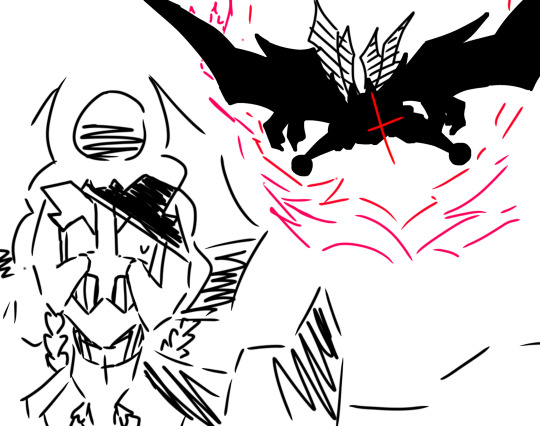
//MISSILE INBOUND//
(Follow up from last post lmfao, can only draw on phone rn, but hi Gamaliel)
WATCH OUT AAAAHHH
17 notes
·
View notes
Text

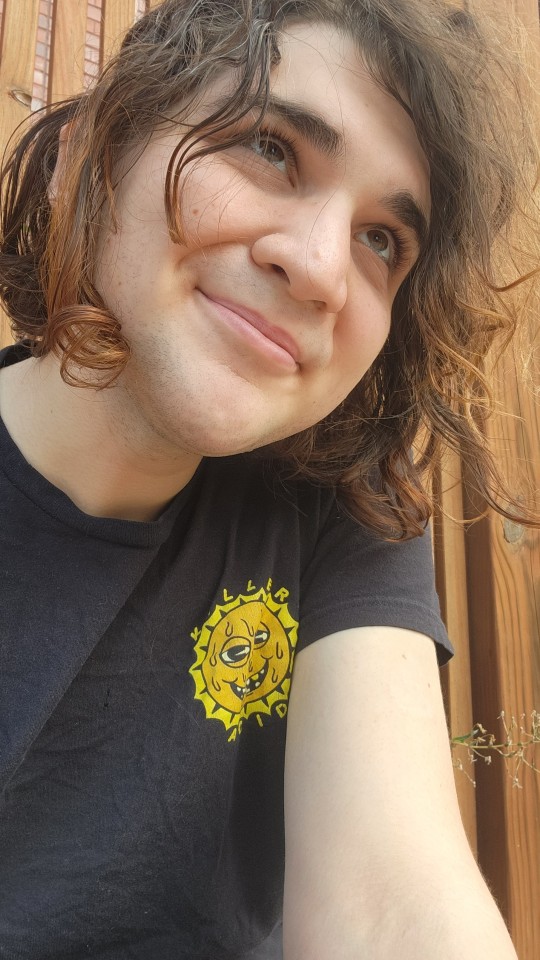
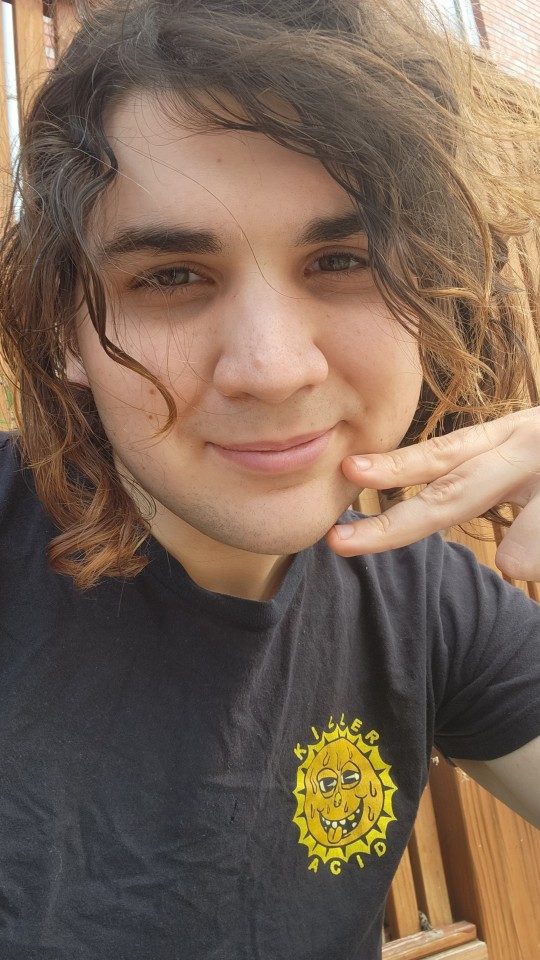
Okaaaay got myself together enough to go shopping annnnnd it's an hour later and I'm still waiting on the bus! Just the silly fun adventures of a silly fun girl
1 note
·
View note
Text
"you're the writer, you control how the story goes" no not really. i wrote the first sentence and then my characters said "WE WILL TAKE IT FROM HERE" and promptly swerved into an electrical fence.
#now im watching their whole lives fall apart on google docs#i dont know whats happening but by god im excited to see where it goes next#writers on tumblr#writerscommunity#writeblr#writing#bookblr#creative writing#writing life#writers and poets#novel writing#my characters#original characters#writing stuff#fanfiction#darkacademia#10k#20k#30k
39K notes
·
View notes